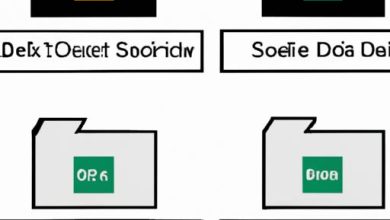Can Data Analysts Work from Home?

In the fast-paced digital era, remote work has become a prevalent trend across various industries. Professionals are now seeking flexibility and work-life balance, leading to the rise of remote job opportunities. But what about data analysts? Can they also work from the comfort of their homes? In this article, we’ll explore the growing trend of remote work and delve into the possibility of data analysts joining the bandwagon.
Introduction
The world today revolves around data. From market trends to customer behavior, businesses rely heavily on data analysis to make informed decisions. Data analysts play a crucial role in this process, extracting valuable insights and patterns from vast amounts of data. Traditionally, data analysts were expected to work within the confines of an office environment. However, with the advancements in technology and the changing work culture, the concept of remote work has gained significant traction.
The Growing Trend of Remote Work
Remote work has surged in popularity in recent years, driven by advancements in technology and the increasing desire for work-life balance. Employers have come to realize the benefits of allowing their employees to work remotely, including increased productivity, reduced overhead costs, and access to a broader talent pool. Consequently, data analysts are not exempt from this trend. In fact, many organizations are now embracing the idea of remote data analysis, recognizing the advantages it offers.
The Importance of Data Analysts
In today’s data-driven world, the role of a data analyst is more vital than ever before. Data analysts possess the expertise to interpret complex data sets, uncover trends, and generate actionable insights. Their work fuels informed decision-making and helps businesses gain a competitive edge. As the demand for data analysts continues to grow, remote work opportunities are also expanding, presenting a new realm of possibilities for professionals in this field.
In the next section, we will delve into the benefits of working from home as a data analyst. Discover how remote work can enhance your work-life balance and contribute to your overall productivity. Stay tuned for insights on how to overcome challenges and tips for successfully working from home as a data analyst.
Stay ahead of the curve and explore the world of remote work for data analysts!
Benefits of Working from Home as a Data Analyst
In the realm of data analysis, working from home offers a plethora of advantages that can revolutionize your professional life. Let’s explore these benefits that make remote work an enticing option for data analysts.
Flexibility and Work-Life Balance
One of the most appealing aspects of working from home as a data analyst is the flexibility it brings. Remote work allows you to have more control over your schedule, enabling you to find the perfect balance between your personal and professional life. Say goodbye to the daily commute and embrace the freedom to structure your day in a way that suits your needs and preferences. Whether you’re an early bird or a night owl, remote work allows you to optimize your productivity during your most productive hours.
Increased Productivity and Focus
Working in a familiar and comfortable environment can significantly enhance your productivity as a data analyst. Without the distractions of office noise or interruptions from colleagues, you can concentrate on your tasks with undivided attention. Remote work empowers you to create an ideal work setting that promotes focus and efficiency. By eliminating commuting time and the stress associated with it, you have more time and energy to dedicate to your work, resulting in increased output and quality of analysis.
Cost Savings for Both Employees and Employers
Remote work can be a cost-effective solution for both data analysts and their employers. As a remote worker, you can save money on commuting expenses, office wear, and daily lunches, allowing you to allocate your resources more efficiently. Employers, on the other hand, benefit from reduced overhead costs associated with maintaining physical workspaces. By embracing remote work, organizations can invest those savings into better compensation packages or further professional development opportunities for their data analysts.
Access to a Wider Range of Job Opportunities
Geographical limitations no longer confine data analysts who choose to work remotely. By embracing remote work, you can tap into a global job market, opening doors to a wider range of job opportunities. This freedom allows you to explore positions with companies across different cities, states, or even countries, broadening your horizons and exposing you to diverse industries and projects. Remote work empowers you to choose the job that aligns best with your expertise and career aspirations.
In the next section, we will delve into the skills and tools required for remote data analysts. Stay tuned to discover the essential elements necessary to excel in the world of remote data analysis.
Unlock the benefits of working from home and unleash your full potential as a data analyst!
Required Skills and Tools for Remote Data Analysts
Proficiency in Data Analysis Software
To excel as a remote data analyst, it is imperative to possess proficiency in data analysis software. Tools such as Excel, Python, and R are widely used in the field, enabling professionals to manipulate and analyze large data sets efficiently. Demonstrating expertise in these software programs showcases your ability to handle complex data and generate meaningful insights.
Strong Analytical and Problem-Solving Abilities
As a data analyst, your primary role is to extract insights from data, identify patterns, and solve complex problems. Remote data analysts must possess strong analytical and problem-solving skills to thrive in their roles. The ability to think critically, analyze data from various angles, and identify trends is crucial in providing valuable insights to businesses.
Excellent Communication and Collaboration Skills
Effective communication is a key component of successful remote work, especially for data analysts who need to convey their findings and insights to stakeholders. Clear and concise communication ensures that the information is accurately understood and utilized. Additionally, collaboration with team members, even in a remote setting, is essential for data analysts to work seamlessly with other departments and align their analyses with business objectives.
Reliable Internet Connection and Necessary Hardware
Working remotely as a data analyst requires a reliable internet connection and the necessary hardware to ensure smooth operations. A stable internet connection is vital for accessing data, collaborating with team members, and utilizing online tools. Additionally, having a well-equipped workstation, including a powerful computer and adequate storage, enables efficient data processing and analysis.
By possessing the required skills and utilizing the right tools, remote data analysts can effectively perform their roles, regardless of their physical location. In the next section, we will explore the challenges that remote data analysts may encounter and how to overcome them. Stay tuned to learn strategies for establishing effective communication channels and maintaining a structured work routine while working remotely.
Overcoming Challenges of Remote Data Analysis
Effective Communication Channels
When working remotely as a data analyst, establishing effective communication channels becomes crucial. Collaborating with team members and stakeholders requires seamless communication to ensure a smooth workflow. Utilize various communication tools such as video conferencing, instant messaging, and project management platforms to stay connected and maintain open lines of communication. Regular check-ins and virtual meetings can help address any queries or concerns promptly.
Structured Work Routine and Self-Discipline
Working from home can blur the boundaries between work and personal life, making it essential to establish a structured work routine. Set specific work hours, breaks, and deadlines to maintain productivity. Develop a dedicated workspace that mimics an office environment, helping you mentally transition into work mode. Additionally, practicing self-discipline is crucial to avoid distractions and stay focused on your tasks.
Cybersecurity Risks and Data Protection
With remote work, it’s vital to address potential cybersecurity risks and protect sensitive data. Data analysts often work with confidential information, making data protection measures imperative. Ensure your home network is secure, using strong passwords and encryption methods. Adhere to your organization’s security protocols and utilize virtual private networks (VPNs) when accessing sensitive data. Stay updated on the latest cybersecurity practices to minimize the risk of data breaches.
Overcoming Feelings of Isolation
One challenge of remote work is the potential for feelings of isolation. As a data analyst, staying connected with your team is vital not only for collaboration but also for maintaining a sense of belonging. Engage in virtual team activities, utilize chat platforms for casual conversations, and participate in online communities or forums related to your field. Proactively seek opportunities to connect with colleagues to foster a sense of camaraderie and combat isolation.
By implementing effective communication practices, maintaining a structured work routine, addressing cybersecurity risks, and staying connected with your team, you can overcome the challenges of remote data analysis. Now, let’s move on to the next section, where we’ll share valuable tips for successfully working from home as a data analyst. Stay tuned for actionable advice to enhance your remote work experience.
Tips for Successfully Working from Home as a Data Analyst
Setting up a designated workspace and creating a conducive work environment
When working from home as a data analyst, it is crucial to establish a dedicated workspace that promotes focus and productivity. Find a quiet area in your home where you can set up your computer, monitor, and any other necessary equipment. Ensure your workspace is well-lit and comfortable, with a supportive chair and an organized desk. By creating a designated area solely for work, you can train your mind to associate that space with productivity, helping you stay focused and motivated throughout the day.
Establishing clear boundaries between work and personal life
One of the challenges of working from home is the blurring of boundaries between work and personal life. To maintain a healthy work-life balance, it is essential to establish clear boundaries. Set specific working hours and communicate them with your colleagues and family members. Avoid working outside of these designated hours and resist the temptation to constantly check work-related emails or messages. By maintaining boundaries, you can ensure that you have dedicated time for both work and personal activities, reducing stress and preventing burnout.
Creating a daily schedule and sticking to it
Working from home requires self-discipline and structure. Creating a daily schedule can help you stay organized and prioritize your tasks effectively. Plan out your workday, allocating specific times for different activities such as data analysis, meetings, and breaks. Stick to your schedule as much as possible, avoiding distractions and maintaining focus during work hours. By having a well-structured routine, you can optimize your productivity and accomplish your tasks efficiently.
Utilizing project management and collaboration tools
Working remotely as a data analyst often involves collaborating with team members and stakeholders. To facilitate effective communication and project management, utilize various tools such as project management software, instant messaging platforms, and video conferencing applications. These tools enable seamless collaboration, allowing you to share files, track project progress, and communicate with your team effectively. By leveraging these technologies, you can stay connected and productive, even when working remotely.
Seeking professional development opportunities to enhance skills
Working from home provides an excellent opportunity to invest in your professional development. As a data analyst, staying updated with the latest tools, techniques, and industry trends is essential. Take advantage of online courses, webinars, and virtual conferences to enhance your skills and expand your knowledge. By continuously learning and upskilling, you can stay ahead in the competitive field of data analysis and ensure your expertise remains relevant.
In the next section, we will conclude our discussion on the possibilities of working remotely as a data analyst. Discover the recap of the benefits and challenges, and the increasing trend of remote work. Stay tuned for the exciting conclusion!
Unlock your full potential as a remote data analyst with these valuable tips!
Conclusion
In conclusion, the growing trend of remote work has opened up exciting opportunities for data analysts to work from the comfort of their homes. The flexibility and work-life balance offered by remote work are highly valued in today’s fast-paced world. By embracing remote work, data analysts can enjoy increased productivity, reduced costs, and a wider range of job opportunities.
Remote data analysts require a specific set of skills and tools to thrive in a virtual work environment. Proficiency in data analysis software, strong analytical abilities, and excellent communication skills are essential for success. Additionally, maintaining a structured work routine, establishing effective communication channels, and addressing potential cybersecurity risks are crucial to overcoming the challenges of remote data analysis.
To excel as a remote data analyst, it is important to set up a designated workspace, establish clear boundaries between work and personal life, and create a daily schedule to stay organized. Utilizing project management and collaboration tools can enhance productivity and facilitate seamless teamwork. Furthermore, continuous professional development and staying updated with industry trends can help sharpen your skills and stay ahead of the competition.
At data.makethatpc.com, we understand the significance of remote work and its impact on the data analysis field. We are committed to providing valuable resources, insights, and tips for individuals exploring remote work opportunities as data analysts. Embrace the flexibility, unlock your potential, and embark on a rewarding career as a remote data analyst today!
Join the remote data analysis revolution and unlock your potential with data.makethatpc.com!
Conclusion: So above is the Can Data Analysts Work from Home? article. Hopefully with this article you can help you in life, always follow and read our good articles on the website: data.makethatpc.com



